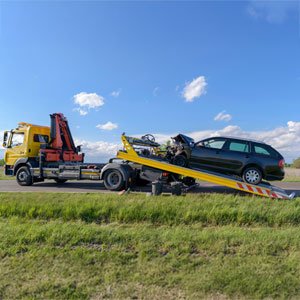Tender Of UM Benefits Must Occur Within 60-Day Window After CRN
Car AccidentsIn the case of Serenity Harper v. GEICO General Insurance Company, Case Number 2D17-4987 (Fla. 2nd DCA March 1, 2019), Florida’s Second DCA held that the 60-day time (see section 624.155, Fla. Stat.) to cure an insurer violation runs from the date of electronic submission of the civil remedy notice and not when the insurer actually receives the notice in the mail.
Pay Careful Attention To The Dates
Serenity Harper was injured in a car accident in 2013. GEICO insured both the at-fault driver and Ms. Harper. Ms. Harper had UM coverage (underinsured motorist) on her automobile policy with GEICO.
Ms. Harper filed a lawsuit on December 10, 2013 against both the at-fault driver and GEICO as her UM carrier. Shortly thereafter, GEICO paid policy limits to Ms. Harper but they refused to pay her the UM benefits available on her policy.
Ms. Harper filed an electronic civil remedy notice of insurer violation (CRN) on December 18, 2013. GEICO claims that it did not receive the CRN by certified mail until December 26, 2013.
On February 3, 2014, GEICO agreed to pay the UM policy limit of $10,000 to Ms. Harper. The settlement check and proposed release were sent to defense counsel on February 10, 2014 and were mailed to the plaintiff on February 21, 2014.
This was 65 days after the CRN was filed.
What Happened Next
GEICO does what it always does. They claim that the payment was timely because they did not receive the CRN until December 26, 2013, which would have been within the 60-day window if you calculated using that date.
The Court stated:
Subsection 624.155(3)(d) plainly states that no action shall lie if the damages are paid or corrective action is taken within sixty days after the insured files the CRN.
As such, the State of Florida considers the CRN filed when the claimant presses the button to submit the CRN even though the claimant is also required to send a copy to the insurer. Hence, the 60-day timeframe runs from the date that the form is electronically filed and not the date that it was actually received by the insurance company.
The result in this case was that the Court held that the 60-day time to cure had not been met.
Insurance Bad Faith Case To Come
Now that there has been a judicial determination that the 60-day time to cure has not been satisfied, Ms. Harper can accept the $10,000 UM benefit from her policy and can still sue under Florida law for bad faith. In such a case where the insurance company fails to meet the 60-day time to cure, the policy limits are considered “open” and there is no limit on the plaintiff’s claim (barring the actual amount of damages awarded by a jury).
While GEICO may still be able to try to convince a jury that it did not act in bad faith (remember that the 60-day time to cure is merely a safe harbor and failure to meet the deadline itself does conclusively doom an insurance company to bad faith), a jury may very well find that GEICO’s actions did not treat Ms. Harper “fairly and honestly” considering all of the circumstances. Only time will tell how this story plays out or whether GEICO decides to settle this case rather than run the risk that a jury finds them in bad faith.
Get Help With Your Florida Uninsured Motorist’s Case
For help with your Florida auto accident claim, you should call an auto accident attorney located in Lakeland, Florida for help. A consultation with our auto accident law firm is free. Call us today to schedule your free consultation with an attorney.


